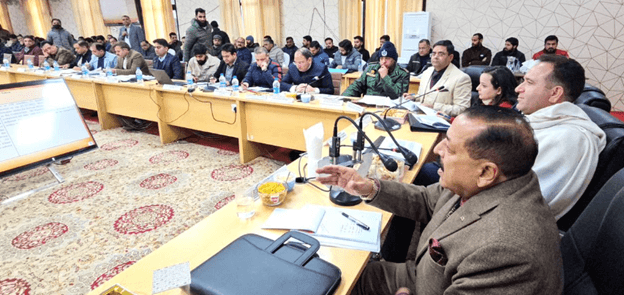Tenders called for Rs.16,000 crore projects
More than Rs.1 lakh crore worth of projects are being readied for tendering as part of India’s mega urbanization programme, said Minister of State for Housing & Urban Affairs, Hardeep S. Puri in an update on the Smart Cities Mission.
Tenders for Rs.16,000 crore projects have been called, while about 3,000 projects worth Rs.140,000 crores at various stages of implementation.
This remains one of the fastest ever project implementations at this scale and geographic spread in urban sector, he told Smart Cities Summit organized by the Federation of Indian Chambers of Commerce and Industry in New Delhi on 16 Jan 2018.
“This will have a ‘Lighthouse’ effect”, he pointed out.
“This is a step in the direction of achieving our vision to improve ease of living.”
New benchmarks are being set up in terms of project implementation, he said, adding that 82 Special Purpose Vehicles (SPVs), or corporations, have been formed for implementing the the Smart Cities Mission.
The focus is on Innovation Digital Techologies and Dovetails with Digital India vision areas and digital empowerment of citizens.
“Smart Cities Mission is a step in the direction of achieving our vision to improve the ease of living particularly for the poor, women, elderly and differently abled people,” he stressed.
“All Indians should be able to enjoy a clean and sustainable environment.
“As a major player in digital revolution and a technology superpower, India must also leverage cutting edge technology to power its infrastructure, offices and homes.”
He said the Smart Cities Mission is progressing at a brisk pace as 90 cities have been selected so far. The selection of 10 more cities will be announced shortly.
Other selected cities and regions around them will soon start undergoing transformation towards becoming centres of urban excellence.
The quality of some of the smart city plans can be ascertained by the fact that Bhubaneswar smart city plan was adjudged as the best city plan by American Planners Association, he pointed out.
For the first time in the urban scenario in India there has been an emphasis to leverage the grant fund given by government through innovative financing mechanisms, he said.
The 90 smart cities have proposed to leverage the fund by 2.5 times through internal revenue mobilization, value capture financing, municipal bond issue etc.
“Cities need to work as start-up and leverage their financial resources. Smart city mission has been heralding this transformation,” said Puri.
He sought to dispel the impression that India was a reluctant urbaniser, stating that India’s case was unique as urbanisation in the country was autonomous, characterized by a whopping 600 million people who will occupy or look for urban spaces by 2030.
“This humongous figure is expected to rise to 800 million by 2040,” he said at the summit inauguration.
“By June this year you will begin to see the physical contours of the processes involved in setting up smart cities such as surveillance systems, improved communications, citizens’ feedback management systems, ease of living for the poor, the aged and differently abled people, etc.,” he said.
Some of the main challenges, he said, were mitigating the impact of carbon emissions in cities, deployment of environmentally-friendly technologies, cleanliness and sanitation.
Smart cities would also require efficient public transport, over bridges, foot and cycle paths and greening of spaces, all of which would have to be designed to facilitate the free and unrestricted movement of people, he pointed out. fii-news.com









